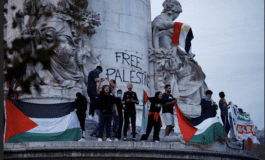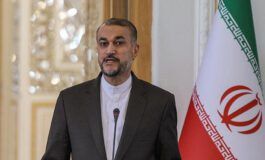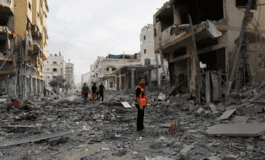
RIYADH — In a first for a Saudi Arabian leader, King Abdullah will convene a conference in Madrid as part of a Saudi outreach to defuse interfaith tensions, improve Islam’s image, and restore respect for religious values.
King Abdullah’s initiative — a three-day meeting starting July 16 that will include Muslim, Christian, and Jewish clerics, as well as representatives of Eastern religions — stands out among interfaith gatherings that have become commonplace in the post-9/11 world.
Not only is Saudi Arabia the birthplace of Islam, but it also is the wellspring of an austere, exclusivist version of Sunni Islam. Sometimes called Wahhabism, it bans the open practice of other faiths in the kingdom and tends to reject inter-religious dialogue with non-Muslim “infidels.”
Ever since the kingdom experienced its own terrorist attacks in 2003-04, however, Abdullah and other officials have been stressing a more moderate, tolerant expression of their faith, sometimes over opposition from hard-liners in the religious establishment.
He has, for example, organized dialogues between Sunni and Shi’a, who are regarded as heretics by hard-core Wahhabis.
Some observers see the international conference — first broached by Abdullah in March — as a way to strengthen his hand against extremist elements at home.
“It’s very difficult to deal with [the radicals]) on an intellectual basis, to open up their minds,” says Shi’a political activist Jafar Al Shayeb. “So having these Muslim scholars from all different parts of the world pushing for a more tolerant course, I think will help the government in dealing with radical groups internally.”
Hastily organized in the past month, the conference is not expected to achieve breakthroughs in the wide array of mutual grievances roiling relations between the Islamic world and the West, ranging from cartoons regarded as blasphemous by Muslims, to restrictions on religious freedoms in some Muslim countries, to the unresolved Israeli-Palestinian conflict.
Its advertised agenda focuses on the importance of dialogue and “how to preserve morality,” says Hassan Al Ahdal, media director at the Mecca-based Muslim World League, which is organizing the event.
“At this moment, we’re not going to indulge in any political issues,” he adds. “There are so many other things on which we can find common ground.”
Rabbi David Rosen, who directs the American Jewish Committee’s international interreligious affairs, wrote in an e-mail that he hopes the conference will be “an opportunity to break down … stereotypes, suspicion, and bigotry.”
He is “very much” pleased by his invitation, he added, though he would have liked to see official Israeli Jewish representatives also invited.
Who would represent the Jewish faith at the conference has been a matter of deep interest since Saudi Arabia, like most Arab countries, does not recognize Israel. Jewish organizations have welcomed Abdullah’s call for interfaith dialogue while insisting that Israeli Jews be included.
The 200 invitees included vocal critics of Islam, notably the Rev. Franklin Graham, a conservative Evangelical who has called Islam an “evil and wicked” religion. He cannot attend because he is preparing for a trip to North Korea, a Graham spokesman said.
Former Vice President Al Gore and the Archbishop of Canterbury were also invited, but declined because of prior engagements, their offices said.
Spain was chosen as the conference site, Saudi officials said, because of its historical symbolism as a place where Muslims, Jews, and Christians lived in relative peace under Islamic rule from the 8th to the 13th centuries.
Given the Saudi religious community’s suspicions toward non-Muslims and deep hostility toward Israel, it would have been extremely difficult to hold the event in Saudi Arabia.
Nihad Awad, founding executive director of the Washington-based Council on American-Islamic Relations, says the venue demonstrates that the Saudis are willing to meet Western religious leaders on their home turf.
“It’s good to bring people in [to Saudi Arabia]; however, we want more Muslim scholars and leaders to go and interact with Western intellectuals, and Spain is a good choice to start with as it represents a place of interfaith tolerance historically,” says Mr. Awad, who recently met Abdullah. “The fact that the king is going is a powerful statement that he’s investing in this personally and wants it to succeed.”
Rabbi Rosen, who also serves as chairman of the International Jewish Committee for Interreligious Consultations, had a different view, writing that holding the conference in Saudi Arabia would have given it “far greater significance both in the Muslim world and in the ‘West.’ ”
Abdullah first disclosed his plans for an interfaith dialogue during a meeting with visiting Japanese scholars last March, describing it as something that had “obsessed [him] since two years ago.” He said he was preparing an initiative in which “believers of the three main religions: the Torah, Bible, and Qur’an will be of priority.”
But all religions would be invited, he added, because “we all believe in the same God.”
The goal would be “to agree on something that would maintain humanity against those who tamper [with] religions, ethics, and family systems.” He said he was distressed by disintegrating family ties, a rise in atheism, and “an imbalance of reason, ethics, and humanity” in today’s world.
Abdullah said he discussed the idea with Pope Benedict XVI when the two met at the Vatican in November in a moving encounter that the Saudi leader said he “will never forget.”
In early June, the king brought about 500 Muslim leaders from around the world to Mecca to discuss Islamic views on interfaith dialogue. Former Iranian President Akbar Hashemi Rafsanjani sat next to Abdullah on the dais in a display of Sunni-Shi’a unity.
The king made clear his concern about Islam’s image, saying that it faces difficult challenges from Muslim extremists, who “target the magnanimity, fairness, and lofty aims of Islam.” He urged the delegates “to face the challenges of isolation, ignorance, and narrow horizons, so that the world can absorb the good message of Islam.”
The event closed with an endorsement of dialogue, paving the way for next week’s conference in Madrid.





Leave a Reply